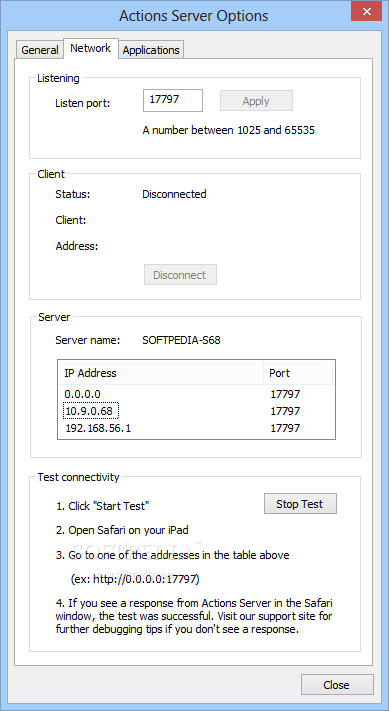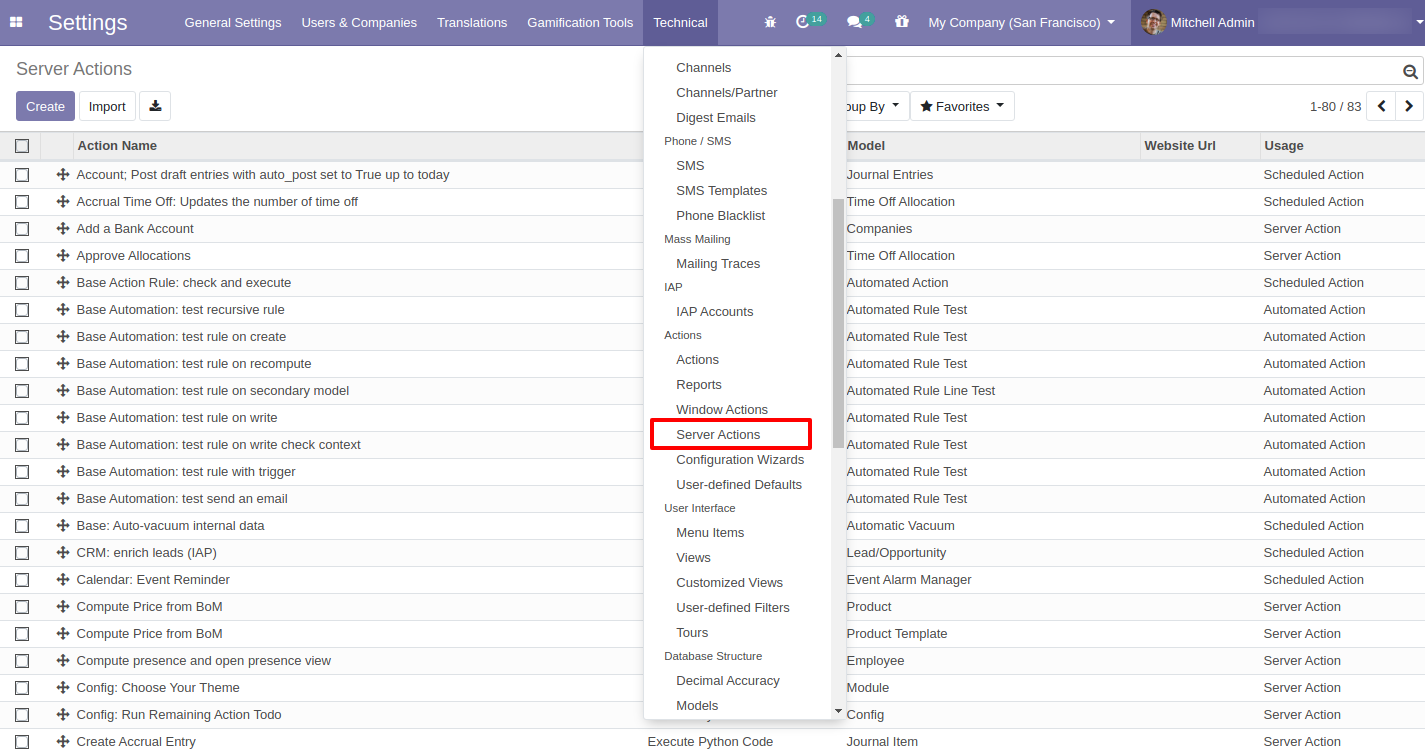

using the Win32 "portable OpenSSH" (from as installed by Chocolatey)
Useful actions server windows#
The keys worked on a Linux system - and I later found that they worked with the OpenSSH included with Git for Windows v2.33.1. I found no problems with line endings (all LF and an LF at the end of the file). These were the identical key files that had been on the system before (the Repair Reinstall didn't remove those files). But a few days ago I had to perform a "repair install" of Windows and therefore had to reinstall OpenSSH.Īfter that my keys used to authenticate to github and gitlab would no longer work giving the "invalid format" error.
Useful actions server install#
I had a working install of OpenSSH from the project (as installed by Chocolatey). I never figured out what the new install of Win32 "portable openssh" 8.0.p1 didn't like about the key files - I just created new keys and added them to github and gitlab: ssh-keygen -o -t rsa -b 4096 -C "New format OpenSSH for github" -f C:\Users\mburr\.ssh\_rsa If no output type is specified, the default is private. This option is not permitted for SSH-1 keys. Save an SSH-2 private key in ssh.com's format. This option is not permitted for SSH-1 keys.Īs private-openssh, except that it forces the use of OpenSSH's newer format even for RSA, DSA, and ECDSA keys. Save an SSH-2 private key in OpenSSH's format, using the oldest format available to maximise backward compatibility. All fingerprinting algorithms are believed compatible with OpenSSH. For SSH-2 keys, the public key will be output in the OpenSSHįormat, which is a single line (`ssh-rsa AAAAB3NzaC1yc2.'). For SSH-1 keys, this output format behaves identically to public. Save the public key only, in a format usable by OpenSSH. RFC 4716, which is a multi-line text file beginning with the line `- BEGIN SSH2 PUBLIC KEY -'.

For SSH-2 keys, the public key will be output in the format specified by For SSH-1 keys, the standard public key format will be used (`1024 37 5698745.'). This will either be the standard SSH-1 key format, or PuTTY's own SSH-2 key format. Save the private key in a format usable by PuTTY. Specify the type of output you want puttygen to produce. I was using a key generated by AWS on Manjaro which is a bit more bleeding edge than most other distros, still worked but the warning message was annoying.įor more info you can use man puttygen but the relevent section is below: -O output-type p:EnvironmentName parameter to "dotnet publish", without success.For anyone who has tried sudo puttygen ~/.ssh/your-key.pem -O private-openssh -o ~/.ssh/your-key-new.pem and got an error message saying puttygen: this command would perform no useful action there is an even newer format so you need to amend the command as follows: sudo puttygen ~/.ssh/your-key.pem -O private-openssh-new -o ~/.ssh/your-key-new.pem
Useful actions server how to#
I think the environment should be defined, but I cannot find how to do this.

I have a C# Blazor server project deployed on Azure App Service using Github actions.ĭeployment is OK, but the WebSite uses appsettings.json instead of.


 0 kommentar(er)
0 kommentar(er)
